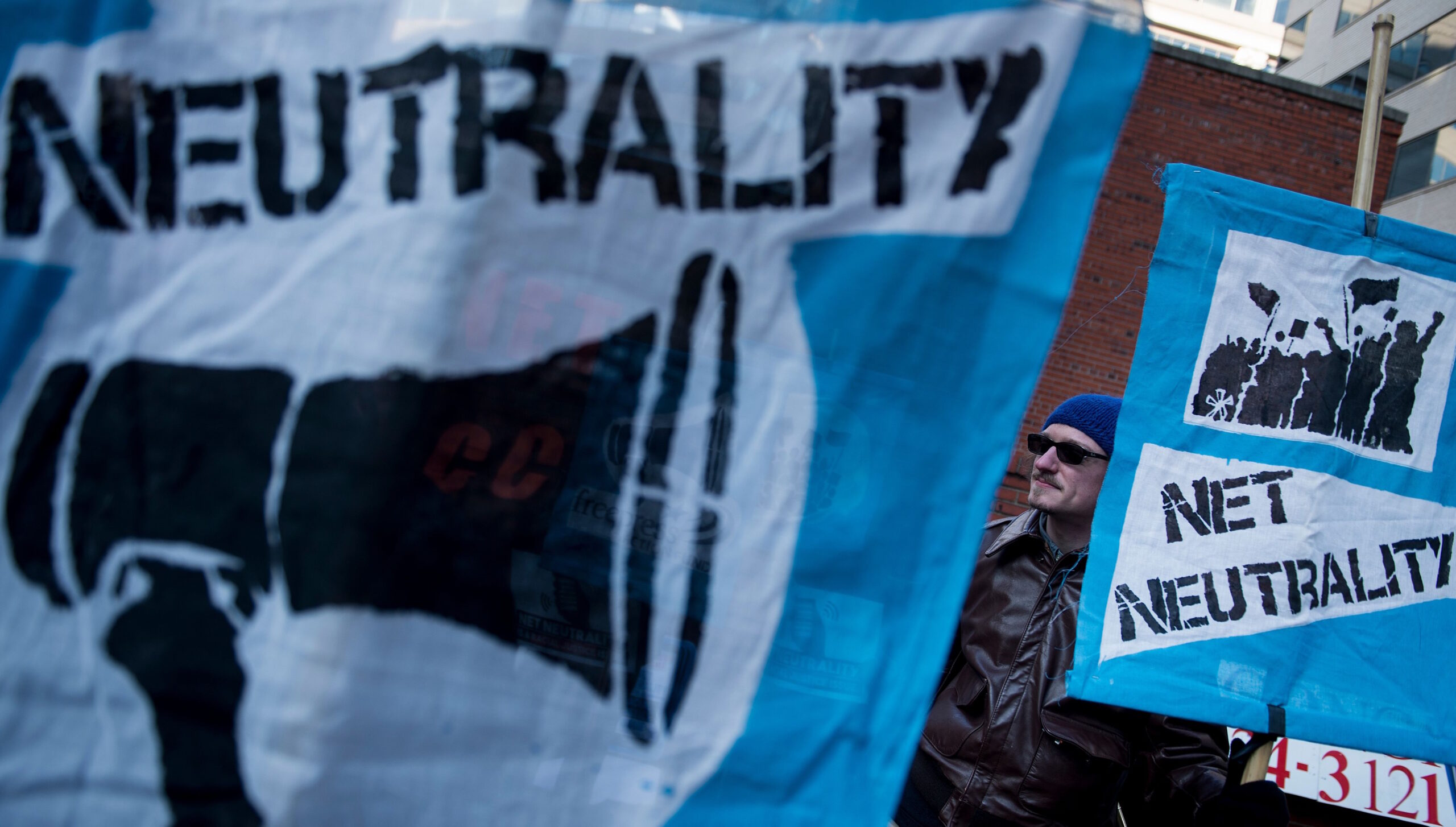Five years after the elimination of net neutrality regulations in the US, FCC chairwoman Juliana Rosenworcel has begun the process of bringing them back, saying that restoring the FCC’s authority over broadband service in the US is needed to ensure the internet “is not only open, but fast and fair, safe and secure.”
The concept of net neutrality was introduced in the early 2000s, and is pretty simple in the broad strokes: It essentially requires that all data be treated equally, and forbids ISPs from throttling speeds or blocking access based on the content being delivered. The Open Internet Order, enacted in 2015 during the Obama administration, enshrined that concept into law, but in 2017, under President Trump, the FCC voted to dismantle the regulations.
It wasn’t a clean break. The FCC’s vote to end net neutrality was 3-2, breaking along party lines, and there was substantial opposition from the general public and organizations including the ACLU, EFF, Google, and some smaller internet providers. Some US states, including California, New Jersey, and Oregon, responded by enacting their own net neutrality regulations, in opposition to the FCC’s stance that they weren’t allowed to do so. It was all a bit of a mess, really.
The push to restore net neutrality crystallized in 2021 with an executive order signed by newly-elected President Joe Biden, which “encourages the FCC to restore Net Neutrality rules undone by the prior administration.” The drive was further strengthened by the appointment of Rosenworcel as FCC chair, replacing former FCC chairman Ajit Pai, who had led the effort to end net neutrality.
Net neutrality isn’t back yet, but the wheels are now turning in earnest. “The Chairwoman is proposing the FCC take the first procedural steps toward reaffirming rules that would treat broadband internet service as an essential service for American life,” the FCC said. “As work, healthcare, education, commerce, and so much more have moved online, no American household or business should need to function without reliable internet service. This was especially true during the pandemic. Such rules would affirm—under Title II of the Communications Act—that broadband service is on par with water, power, and phone service; that is: essential.”
As we explained in 2017 when net neutrality regulations were still in force, gamers likely wouldn’t feel the impact of deregulation in the short term, but as our hobby grows increasingly reliant on digital distribution and online play, “it’s likely that any rule affecting net neutrality will eventually affect how you use the internet to play games or interact with the PC gaming community.”
(Image credit: FCC)
And of course it goes way beyond gaming: In separate comments, Rosenworcel said the impact of deregulation can be felt in areas including public safety, national security, network resilience, privacy, and the rollout of more faster, more expansive internet services in the future. She also said that some of the worst potential outcomes of deregulation have been avoided because states stepped in with their own net neutrality rules, which provided an effective stopgap against some outcomes but isn’t a substitute for a proper national policy.
“If you think that nothing has happened since the FCC retreated from net neutrality and are asking yourself what is the big deal, think again. Then look harder,” she said. “Because when the FCC stepped back from having these policies in place, the court said states could step in. So when Washington withdrew, California rode in with its own regime. Other states, too. They put net neutrality rules in state law, executive orders, and contracting policies.
“So in effect, we have open internet policies that providers are abiding by right now—they are just coming from Sacramento and places like it. But when you are dealing with the most essential infrastructure in the digital age, we benefit from one national policy. All of this means we are not choosing between net neutrality rules and no rules. We are discussing one national standard or a patchwork of state regulations.”
Rosenworcel also warned that the process of restoring net neutrality will likely get “messy” in the current political climate, and asked everyone involved with or watching the process to avoid letting the discourse become overheated: “Make some noise. Raise a ruckus. But keep it in the lines.”
The actual process of restoring net neutrality will begin with a vote to be held on October 19, during a meeting of the full commission. If that vote passes, the FCC will begin taking public comments on the proposal; once they’re collected and reviewed, Rosenworcel “can decide whether and how to proceed.”











